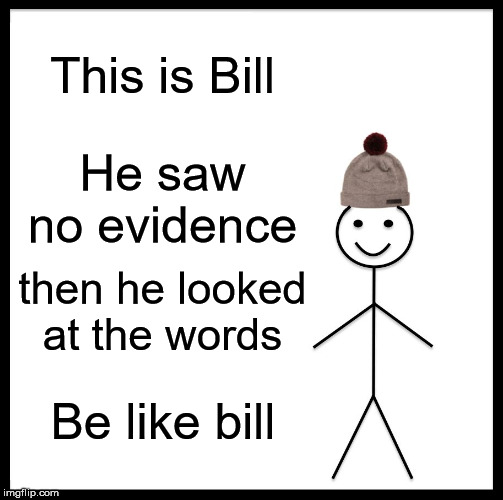so i’ll just pick some random statements, jump in, say a few things about them, and then leave you guys to do your thang.
i’d say you two neither agree or disagree on a grander scale than maybe regarding a few single statements scattered throughout (on account of them making sense). but there wouldn’t be, couldn’t be, actually, general agreement or disagreement because neither of you understand each other. not because you to lack the capacity of understanding, but because what you’re saying can’t be understood.
i don’t know if he said that or not, but it’s not important. what is important is that if he did say it, it’s a typical metaphysical statement which makes no sense (which i’ll address in a moment). or, he may have said something else which led you to believe he meant that… but then that’s impossible. one, because one can’t mean nonsense, and two, nothing someone says that is understoood could lead someone else into believing they meant something nonsensical. in other words, you couldn’t take something he said sensibly and infer that he meant that… that premise, i mean.
now this is interesting because it assumes that the statement ‘being is experience’ is also stating that ‘being is its own cause’, or else your objection wouldn’t be what it was. but, there is no way to deduce from his statement that he didn’t also mean that - he doesn’t state or not state it explicitly. so, in addition to the statement being senseless, your interpretation of it yields a conclusion which you couldn’t deduce from it. this means you re-appropriated the statement and understood it in the way you would mean it, and then disagreed with it. but here you’re arguing with yourself. and this goes on much more in these debates then folks realize.
so on to the statement ‘being is experience’ (X, we’ll call it)
behind the indicative mood of this grammar is a hidden violation of logical form, meaning, the things about indicative statements that enable us to understand them and draw inferences from them, are absent. it appears like an empirical proposition about matters of fact, but is actually not at all such a proposition.
take a real empirical proposition: jakob owns a cheeseburger.
now in order to understand this statement, we’d not need to know if it were true or false. we know what it means even if we haven’t a clue whether or not you do own a cheeseburger. but comprehending X goes hand-in-hand with knowing it is true or false. as soon as it is understood, its truth status follows immediately. which is to say, we accept or reject it solely on the basis of what its trying to express, not on any evidence (like whether or not jakob owns a cheeseburger).
the truth status of the statement will be based on the following considerations:
The meaning the words it contains, the definitions of the terms employed, a series of supporting arguments, and one or more ‘thought experiments’.
and yet in each above case, the truth status of the statement will depend entirely on the supposed meaning of yet more words. no evidence is needed, and neither is it possible to devise experiments or observations that could validate the proposition, even in theory.
it is possible to reject the statement right out of hand, but that repudiation won’t be based on evidence, either. most likely it will have been motivated by yet another (perhaps rival) philosophical theory. again, involving yet more words, and still no evidence.
now what you don’t know is that i have just shamelessly plagiarized something written by the late and great rosa lichtenstein… something i have posted at least twice here at ILP. did you get the weird feeling like you’ve read something like that before as you were reading? if so, excellent. it means you read it. if not, excellent. this means you get to read it.
anti-dialectics.co.uk/Why_al … nsical.htm
scroll down to ‘metaphysical theses’ and pick up where i left off. it gets better. well, in your case, worse. much worse.

